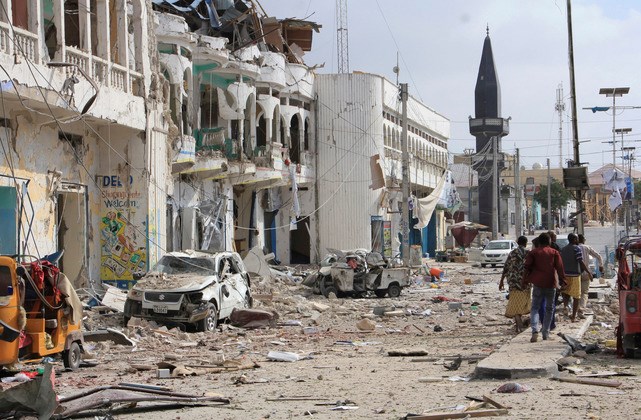Hiraal Institute
Tuesday April 2, 2019

Somalis walk near the destroyed hotel and cars in Mogadishu, Somalia, 25 January 2017 / AP Photo/Farah Abdi Warsameh
Business in Somalia is shaped by security and governance issues. Major businesses in the country started their journey during the darkest days of the civil war. They adapted to the situation and helped lay the groundwork for the recovery of the Somali state by building bridges across clan borders. As the country enters its third decade of internal strife, Somali businesses continue to grow, many on a global scale. They are now subject to local, national, and global forces.
We found that major businesses proactively complied with the laws; most did so on their first day of operation. Banks had strict Know Your Customer and due diligence systems in place from the outset, before the government required them to do so. Being part of a globalised economy, they complied with global standards even if the government did not require them to do so.
Data protection and privacy was also looked at in order to identify loopholes and space for improvement. We found that local considerations had created a culture of cautiousness when it came to data retention and access. The businesses are years ahead of the government in this regard; Somalia has no data protection law, and none seems to be in the works.
Full report